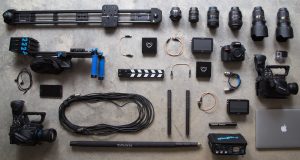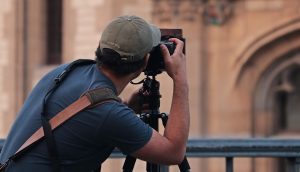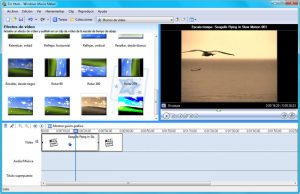Filmmaking is an art. It takes even the greatest practitioners like Stanley Kubrick and Alfred Hitchcock years to master.
All filmmakers dream of creating a masterpiece. Unfortunately, such films take an enormous amount of collaboration and equipment. Movies need actors, producers, cameramen, soundmen, scriptwriters and so on and so on.
A Hollywood blockbuster will typically have thousands upon thousands of top professionals working with the best equipment money can buy in order to realize the director’s vision. So how can a filmmaker who does have access to such funds stand a chance of creating a great look to their film?
The great news is that thanks to advancements in camera and sound recording technologies it is much easier these days to create a professional look to your movie.
Even the cheapest cameras are now able to record in high definition. Cell phones now too are able to record in exceptionally good quality. In fact, there are now a number of films that have been recorded on iPhones that have gained distribution.
In this article, we want to take a look at a few tips that will help you polish up your final product without the need to spend hundreds of thousands of dollars doing so.
Top tips on improving your final movie
1. Know your equipment and be prepared
This is such an obvious point that it really should need to be repeated. However, you would be amazing how many aspiring filmmakers don’t really know their equipment.
Director Stanley Kubrick knew his cameras. He once managed to trick a movie studio into selling him a set of rare cameras that would allow him to film in very low light. These he used to film the dinner scenes in Barry Lyndon.

A key thing to remember is that a camera sees different from the human eye. Don’t just expect that because you see a great shot that your camera will see it that way. Likewise, sound is the same.
Go out and get to know all your equipment inside and out before you start shooting. This will ensure that you get what you want on film.
Here is the bare minimum list of things you will need to shoot your movie:
- Your camera
- Spare batteries that are fully charged.
- Plenty of storage cards/tapes.
- Lens cloth and rainproof camera case.
- Tripod
- Lighting gear
- Decent sound recorder
- A sense of humor
For more on the best equipment to shoot your film check out this link.
2. Getting the right shot
Too many times in the editing room do filmmakers sit there wishing that they had gotten a different shot. To try to prevent this, a filmmaker should think through a scene and storyboard.

When the big day comes, he/she should remember to be adaptive and look for new opportunities to improve shots. Rehearsing actors is a great chance to test out new angles and zooms.
Unless you are going for a grainy look then stay away from digital zooms.
If you are using your phone, your final film will benefit dramatically from you investing in a tripod. Without a tripod, the final look will be spoiled by handshake and make your film look amateur.
Finally, if you are planning moving shots or pans then it is worth walking through them while filming several times to ensure that you have your lighting right as well as your shot.
Avoid moving from low background light environments to heavy lit backgrounds as this will inevitably cause a point where the light is too intense and spoils the shot.
3. Always keep an eye on the light
Lighting is everything when it comes to how a film looks. Even the worse set can be made to look really realistic when the lighting is right. Don’t believe me? Well, just take a look at some of the old horror movies of the ’30s and ’40s to see how a few lights, a little smoke, and some bad costumes can scare the hell out of an audience.

Remember that raising your lighting rigs or using directional lighting through windows, for example, gives a scene a really iconic look.
Check out this article if you are on a super tight budget and want to know how to shoot in natural light.
4. Nail the sound
Cleaning up poor sound recordings in post-production is a real nightmare. Not only that but it is a really costly and drawn-out affair. It is for this reason that Hollywood will often recreate entire townscapes on the lot so that they can film without having to worry about frustrating background sounds. (https://www.secolarievoo.com)

Few low budget filmmakers will be able to access the kind of expensive sound equipment that will give really professional results. Unfortunately, this makes sound the most difficult aspect of creating movies to get right. That said, there are still some things filmmakers can do to improve the final result.
Get a decent microphone. Once again, advancements in technology have helped filmmakers enormously over the last few decades. It is now possible to get your hands on some pretty decent directional microphones for $50 and up. While these will definitely have some noise, they are much better than any inbuilt mic.
5. Get yourself a good post-production editing suite
Editing is one of the areas that technology has completely revolutionized. It used to take hundreds of thousands of dollars’ worth of equipment to edit a film. These days, professionals stick to the likes of Adobe Premiere Pro and Final Cut while amateurs can edit their films using an array of straightforward editing suits like Windows Movie Maker or PowerDirector on Android phones.

Even the most basic programs offer tools with which filmmakers can clean up shots and even reduce camera shake.
Read how to produce a low budget movie for more great tips on getting your film made.




Stay connected